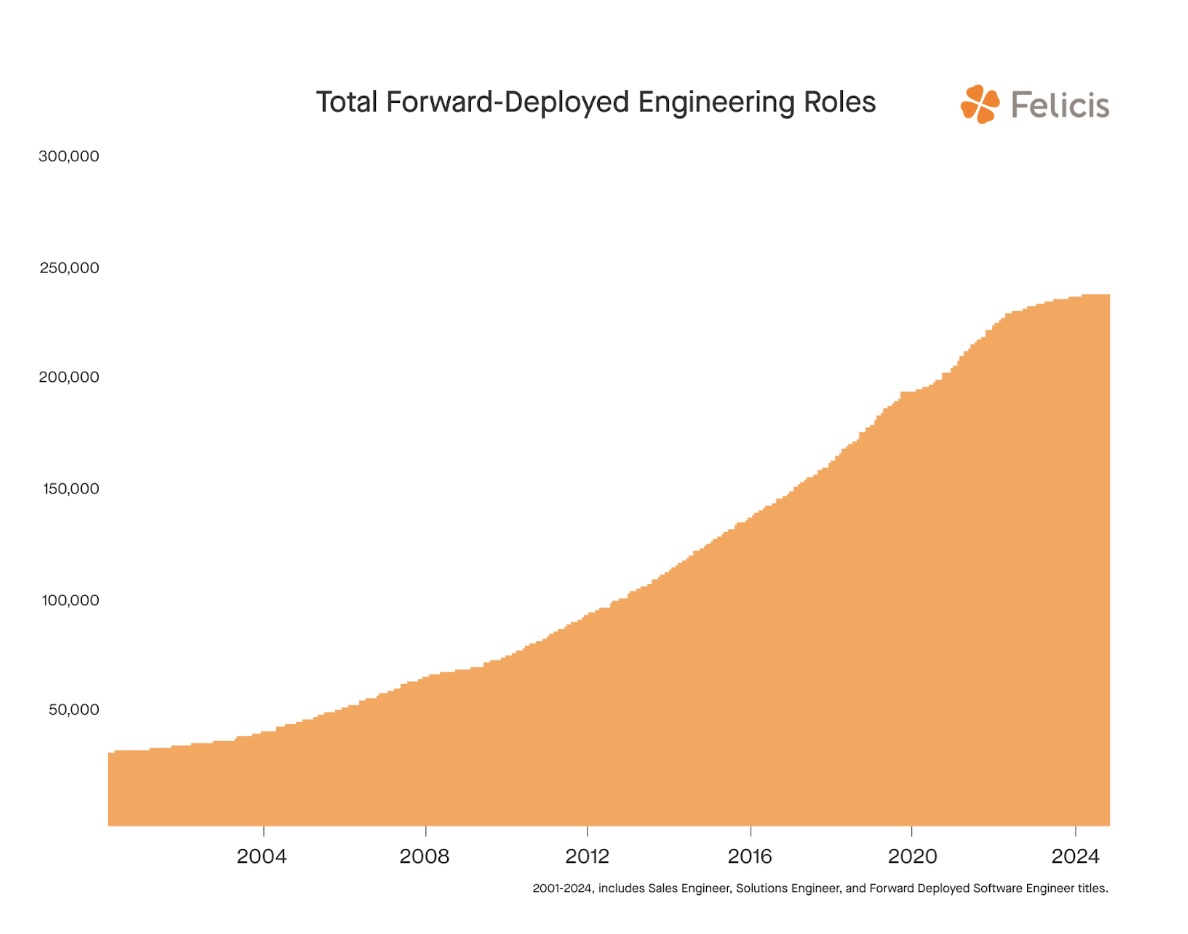
The way most firms sell to customers is incredibly outdated.
As artificial intelligence becomes increasingly embedded in business operations, it has the potential to fundamentally change the structures of firms, especially in the sales of products and services.
The transition from large, traditional salespeople to leaner teams of sales engineers and strategically placed sales specialists will have a significant impact on strategy, cost structure and operational efficiency.
Not your regular sales team

The emergence of salespeople – business development representatives, account executives, and managers – arose from the way software was created and sold. The repetitive nature of software and lack of physical inventory meant creating demand required specialized teams. This shifted capital from cost of goods sold to selling, general and administrative expenses, and revenue teams became one of the largest organizations in software firms.
However, firms can streamline their approach as AI automates repetitive sales tasks equivalent to customer outreach, prospecting and qualifying. Tools like 11x simplify reaching your audience, and LLM advancements like OpenAI‘s o1, make automatic qualification a reality.
Meanwhile, relationship building and implementation will proceed to require human interaction, especially for technical products that require sales professionals.
An increase in the number of forward-thinking sales engineers
Palantir Technologies exemplifies the future of sales based on the FDSE model, or FDSE for short – technical experts embedded in customer operations to facilitate integration and optimization of solutions in real time. FDSEs work with customers to deploy technology on-premises or via a virtual private cloud, ensuring AI systems understand workflows and challenges.
This model will spread to industries equivalent to healthcare, finance and energy, where the security of contextual data is critical.


Companies emulating this model in 2025 and beyond will hire technical experts to speed up product adoption, shorten sales cycles and create a continuous feedback loop. A hub-and-spoke approach may emerge, where managers coordinate FDSE in specific industries.
AI sales power
Sales teams of the future shall be leaner, and hybrid roles will mix BDR and AE responsibilities. AI will handle outreach and qualification assistance, allowing account managers to focus on building relationships. Operational efficiency will increase as precision targeting improves conversion rates, reducing customer acquisition costs and increasing profitability.
One of the biggest opportunities that AI will help forward-deployed engineers is in software development. As custom software pilots and agents turn out to be more entrenched in on a regular basis workflows, many startups might want to take a more tailored approach or face the prospect of a customer dropping out to build something themselves.
As the development pendulum swings toward custom solutions, startups must integrate with models that code or create agents that customers can easily customize based on their very own data. Custom software development for consumers was often avoided because customer hand-holding wouldn’t allow for scaling or the return on investment was low. However, as models turn out to be higher at coding, it would quickly turn out to be common for FDSEs to guide dozens of agents to create effective solutions for customers.
Challenges include acquiring the right data to enhance FDSE workflows and overcoming skepticism about interacting with AI. However, the potential for lower SG&A costs and scalable AI development offsets these obstacles.
The path lies ahead
In the next decade, sales teams will transform into strategic centers supported by automation and artificial intelligence. Forward-deployed sales engineers will bridge the gap between technology and buyers by delivering solutions tailored to customer needs. These structural changes will enable firms to fulfill growing demand and thrive in an AI-powered future.

